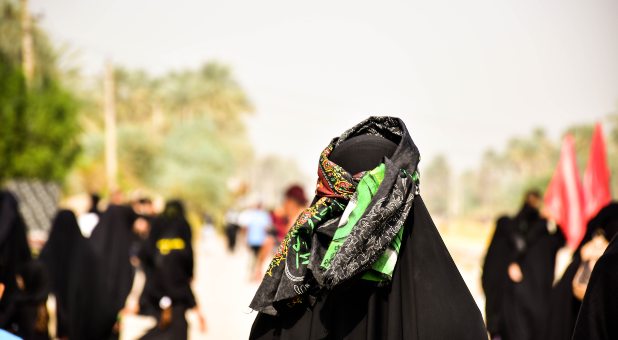Why Christians Might Soon Flee Iraq in Droves
Growing insecurity in Iraq and on its border could lead to a fresh exodus of Christians from the country, warns a partner of Release International (releaseinternational.org), which is supporting refugees in the country.
The Turkish invasion of Syria and growing protests in Baghdad could drive even more Christians out of the country, believes Jamal Liddawi, a partner of Release International, which provides aid to persecuted Christians.
Only around 300,000 Christians remain in Iraq from a peak of 1.8 million in the year 2000. They’ve been driven out by conflict and insecurity. And many more are now anxious to leave, says Liddawi: “Most of the Christians have lost hope. Many of them are applying to leave the country, and if they can, they will.”
Liddawi is working with Release International to support refugees in Erbil, the principal city of Kurdistan, in northern Iraq.
The recent Turkish invasion of neighboring Syria is threatening to drive a new wave of refugees into the region.
“The Kurdistan government are preparing for between 100,000 and 200,000 refugees,” says Liddawi. “They’re preparing for a big number to come.”
The Release partner says the Kurdish people in northern Iraq were shocked by the American decision to pull their troops out of Syria, which precipitated the Turkish invasion.
“The Kurds feel betrayed by the U.S. decision to take their troops out of the north. They believe it has given the Turks the right to invade the Kurdish area in Syria. Many people have been killed. This has impacted Kurdistan because even more refugees are now coming into the region. Everybody’s confused and shocked by the decision.”
The street protests in Baghdad and Karbala, to the south, are deepening that sense of insecurity. Hundreds have been killed in continuing protests over government corruption, high unemployment and the influence of Iran in the country. As a result, many of Iraq’s remaining Christians now want to leave.
Many have already fled to Erbil, where the Kurds have given them safe haven. Some 50,000 others are said to be scattered across the plains of Nineveh, in towns and villages near Mosul, which until recently was occupied by Islamic State.
Many Iraqis have been refugees several times over—driven out by the Gulf War, insurgency and IS fighters. They’ve had enough, believes Liddawi. “For the last hundred years, they have been under attack. They have lost hope. They have lost the desire to rebuild again.”
He says there are now more than 6,000 Christian families across the border in Jordan, who have been trying for up to six years to get asylum in the West. “We encourage them to go back to Iraq but their homes have been burned down, there’s no water or electricity, there are no jobs and some of their villages still don’t have schools.”
And the recent death of Islamic State leader Abu Bakr al-Baghdadi will do little to allay the Christian community’s growing fears, says Liddawi. Baghdadi blew himself up, along with his children, in a surprise attack by U.S. special forces. But even though the self-proclaimed Caliph has died, his ideology lives on, believes Liddawi.
“Islamic State has sleeper cells. If IS is finished today, then another movement with a different name will just come and replace it. That’s why the Christians want to leave.”
Liddawi has been working with Release International in Iraq to help the Christian community support refugees, be they Christian, Muslim or Yazidis.
He does so with the blessing of the Kurdistan government. “They saw the impact of what we were doing and said, ‘We want you to do more.’ They have given us a huge open door to reach the refugees, and permission to distribute food and Christian books everywhere we go. They have even given us a thank-you letter. Please pray for our protection and the continuing favor of God to help the refugees and displaced people in the region.”
Through its international network of missions, Release International is active in more than 30 countries around the world, supporting pastors, Christian prisoners and their families; supplying Christian literature and Bibles; and working for justice. {eoa}
This article originally appeared at Assist News Service.















































